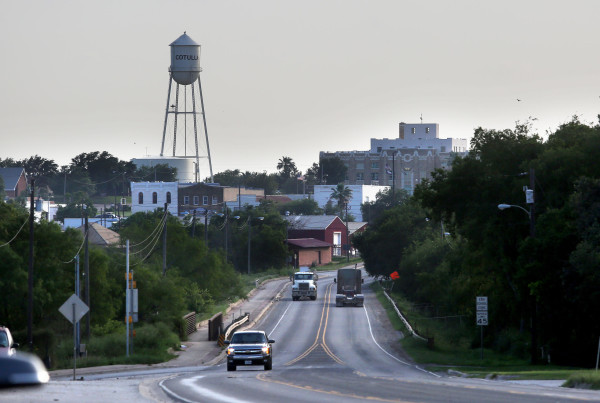In a season of withering political divide, it must be said that fewer things are more narrow-minded than understanding the death of Antonin Scalia in political terms. In the years before his unexpected passing at a West Texas resort this weekend, Scalia was reviled by the left as an opponent of outcomes they wanted, and championed by the right as a crusader of conservatism.
The thing about Scalia lost on most – though to his credit, not lost on President Obama – was that Scalia did not view the world in ideological terms, as much as in intellectual terms. Perhaps that’s why his best friend on the bench was also, arguably, the smartest, too: Ruth Bader Ginsburg, despite the fact that they almost never agreed on the bench. That’s why, as David Axelrod is now confessing, Justice Scalia urged President Obama to nominate Elena Kagan. Not because she would vote with him – she would not, by the way – but because she was an intellectual equal, perhaps even a superior. She thought about the impact down the line, rather than who’d win or who’d lose in the short term.
As you know five votes on the court make a majority. Hate him all you want, love him like an idol if you must, but don’t lose the plot: Scalia may well have been the most important jurist since the New Deal.
He left unfinished business, including at least four cases out of Texas that could have profound impact on society and American democracy.
Sanford Levinson specializes in constitutional law at the University of Texas Law School. Here, Levinson gives his thoughts on the four Texas cases hanging in the balance:
1. In United States v. Texas, the court is expected to weigh-in on whether one of President Obama’s executive orders regarding immigration should go into effect.
“One can predict, to a certainty, that there will not be five votes for a majority opinion chastising the President for going beyond his power. It is, therefore, possible that’ll be a 4-4 tie, which would be a loss for the Obama administration, because the decision below was against them.
“On the other hand, I don’t feel any great confidence in predicting the votes, particularly of Chief Justice Roberts and Justice Kennedy. Roberts comes out of a presidentialist tradition … It is not self-evident to me that simply because you’re a Republican, or even a conservative Republican, that you will necessarily vote against this assertion of presidential power. I might be wrong, but the one thing I’m absolutely confident about – and if I had a ranch, I would bet it – is that the Obama administration no longer has to fear losing by a 5 to 4 vote.”
2. Evenwel v. Abbott, known as “one person, one vote,” which could impact how states draw political districts.
“One can say that there is now no realistic possibility that Texas will lose this case. I could imagine a 4-4 tie, in that case Texas wins, because ironically enough, the Abbott administration – or, more accurately, the solicitor general who argued the case – is kind of allied in a curious way, with the four liberals, who are not in favor of really racing into what Justice Frankfurter, a number of years ago, called the political thicket and absolutely turning the American political system upside down. But I don’t have a confident sense as to how Roberts and Kennedy would vote.”
“Roberts is a little bit more pragmatic. He really does have to decide whether he wants to take the heat for this remarkable transformation of the American electoral system in a way that would inevitably, and I think correctly, be viewed as a Republican attempt to diminish the likelihood of Democrats being elected.”
3. Fisher v. University of Texas is yet another test of the constitutionality of affirmative action.
“Now, as is so often the case, it all depends on Anthony Kennedy and what’s interesting about Scalia’s death, given that Elena Kagan had been recused, is that he can now make it a 4-3 decision either way. Whereas before, with only eight judges, there was a real possibility, even if Kennedy flipped and voted with the University of Texas, that would make it a 4-4 tie.”
4. Whole Woman’s Health v. Hellerstedt that will decide the fate of two provisions in HB2, the law that imposed tighter restrictions on abortion clinics in Texas.
“Here I would be mildly surprised if Scalia’s death makes that much of a difference, because given the willingness of the Supreme Court to stay a circuit decision, that means there’s five votes who are dubious that the Fifth Circuit decision will stand. So it would not be surprising if it’s a 5-3 decision with Kennedy writing the opinion striking down the vote. But if, for some reason, Kennedy votes with his more conservative colleagues, it means a tie, which means that the Texas law would stand. But now there is zero probability of this case being the vehicle to reverse Roe v. Wade.”
Listen to the full interview in the audio player above.















